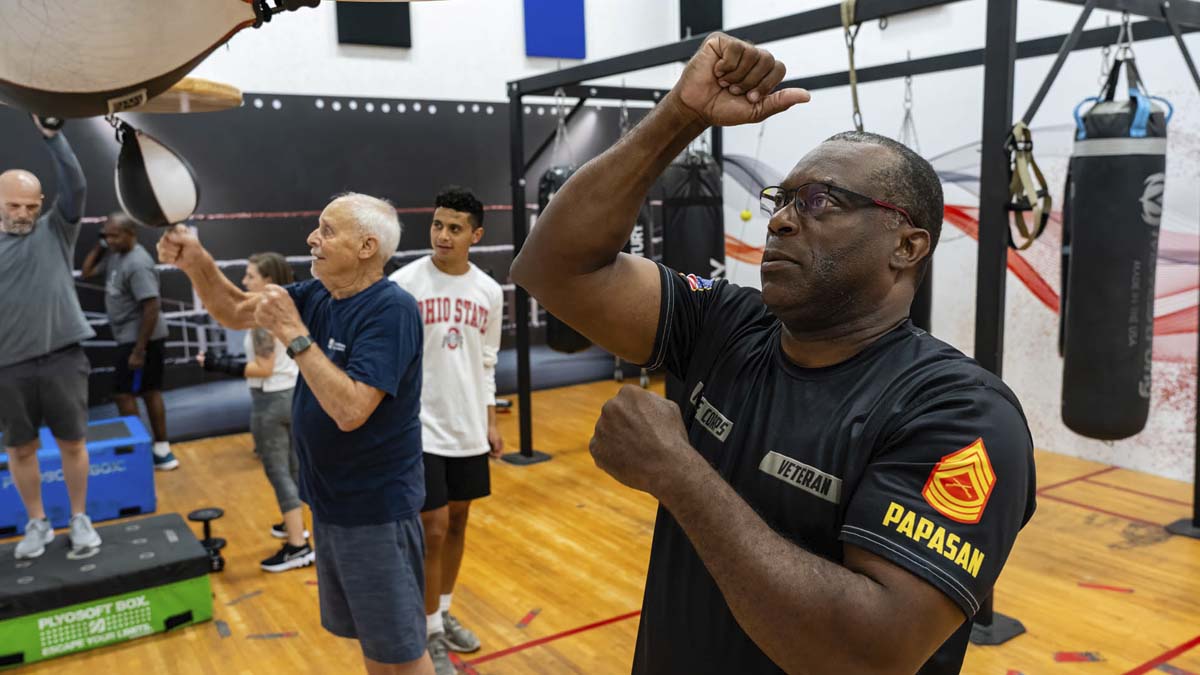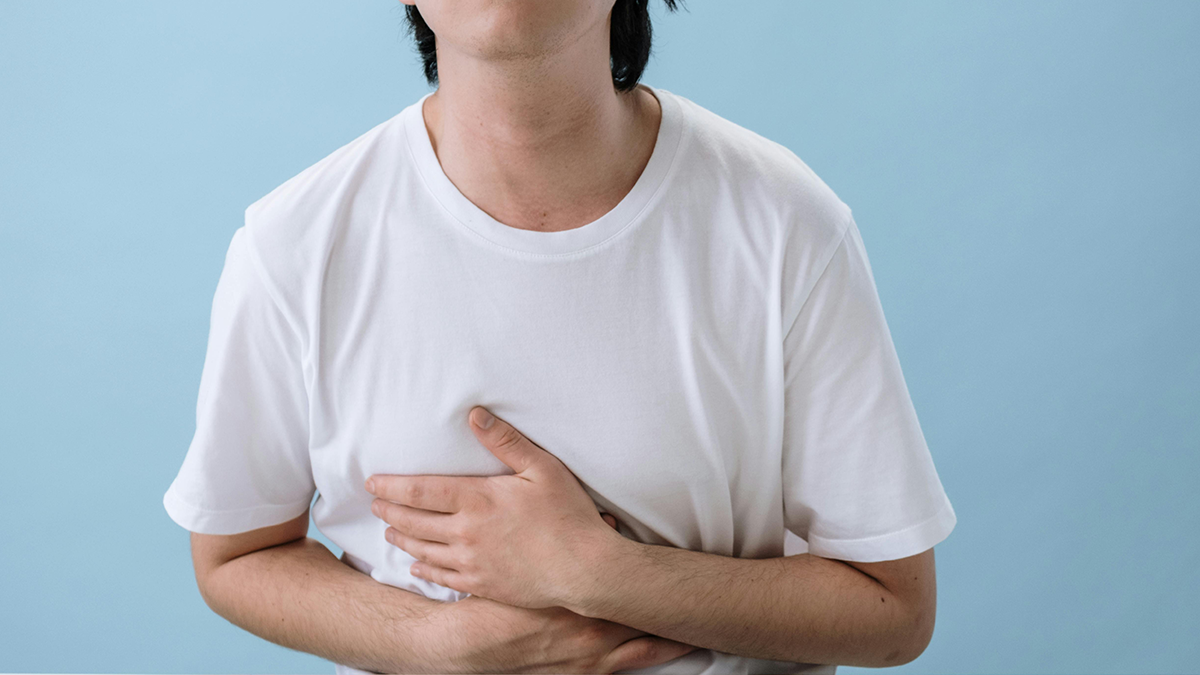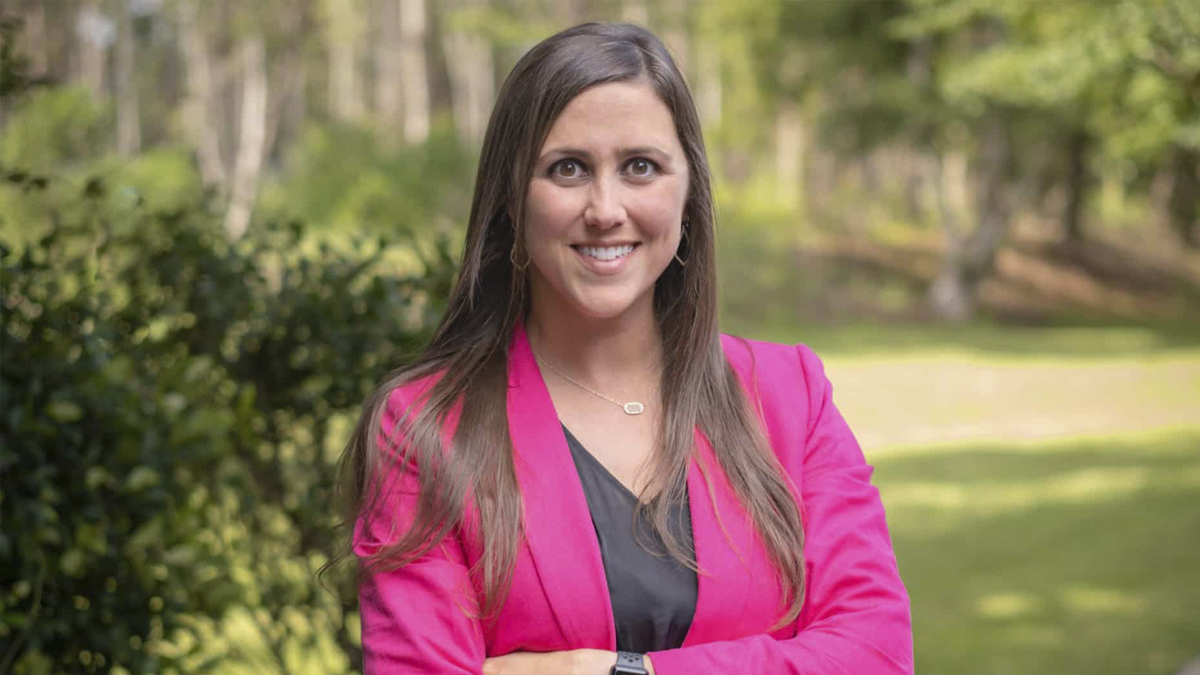The Medical University of South Carolina Wellness Center is improving the lives of prostate cancer survivors 10 weeks at a time through its Prostate Cancer Survivors’ Strength Camp.
Participants begin each 90-minute session with educational briefings from experts in their field, learning about subjects such as nutrition or breath work before moving on to the sweat work.
Beyond simply working through prescribed physical therapies, the curriculum utilizes functional components of fitness to prepare participants for life outside the gym – swimming, yoga, pickleball, boxing and, of course, weight training. While beneficial to overall physical health, these activities also focus on specific challenges that prostate cancer survivors face.
“Our primary goal is to build strength and stamina,” said Program Director Cindi Day. “We focus on core strength, as it’s often lost during a sedentary recovery, especially if they have had surgery. We pay lots of attention to the core and to pelvic floor therapy with exercises they can do at home, too.”
Survivors are regaining strength they have lost through treatment for prostate cancer, and many feel they’ve surpassed their pre-diagnosis fitness levels.
“We’ve often heard comments that clients’ fitness levels are better than they were prior to treatment,” Day exclaimed.
Day revealed that clients may delay participating in physical activity after treatment for reasons such as fatigue and deconditioning. Another reason for avoidance is fear.
“The fear of jumping back into physical activity after all they’ve been through is real,” Day said. “Participants aren’t sure what their bodies are capable of at that moment. Having a knowledgeable support system and education about what they can do post-treatment allows them the confidence to face the challenges we’re putting in front of them.”
“One of my favorite components is the nutritional education offered during the sessions,” said Chrissie Wojciechowski, clinical exercise program coordinator. “I love observing our participants’ light-bulb moments, incorporating the nutritionist’s suggestions into their diet and reporting back how much they’re enjoying the changes they’ve made.”
Fitness is the definitive goal of the program, but Day shared a happy by-product: fellowship.
“We’ve received deeply sincere feedback about how fulfilling it’s been, developing a strong support system with others who truly understand what they’ve gone through,” said Day. “Some participants decide to keep the camaraderie going and continue to meet after the course’s conclusion.”
Setting participants up for success, the course includes an extra month’s membership at the Wellness Center. They’ll have use of the gym, group classes and other amenities. Both Day and Wojciechowski are available to assist program graduates with challenges that may arise once they’re on their own. If potential clients are hesitant to participate, alumni have offered to return as ambassadors to support the next group.
“We can be there on the first day and help celebrate on the last,” one said.
Day and Wojciechowski will certainly take them up on that. They are happy to host this unique experience and to cultivate a supportive community among prostate cancer survivors.
The camp is free of charge thanks to funding by the MUSC Hollings Cancer Center and the organization “Rackets for Recovery.”
The next session begins Jan. 30, 2024. Prostate cancer survivors from any of the area’s hospital systems may participate, but space is limited. Email Wojciechowski at wojciecc@musc.edu for more information.
By Amy Gesell






